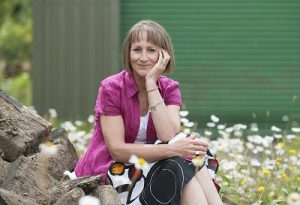Some reflections on being an MBSR teacher
By Susan Barrett, January 2019
One of the best decisions of my life was making the choice to move to Co. Kerry 30 years ago. A county justifiably called “The Kingdom”, where every twist and turn of the road brings an encounter with the almost heart-stopping beauty of mountain and sea. Surely the peace and expansiveness of this landscape must be reflected in the day to day, lived experience of its inhabitants?
If only this were the case. In this tiny Southwest corner of our little island, I find myself over and over again, confronted by the enormous depth and breadth of human suffering. My work as an MBSR teacher, which began 6 years ago, brings me to the coalface of this suffering, suffering no doubt that is reflected in every county of Ireland and in every corner of the globe.
There are many aspects of this suffering that invite our reflection but for now, I’d like to consider this particular aspect of the role of an MBSR teacher, an aspect that is crucial and fundamental to our role… “How do we, as MBSR teachers, support people in meeting their own suffering?”
It can be useful to first consider the various shapes this suffering can take? It’s the parent who is exhausted trying to balance the challenge of a busy job with the demands of rearing a young family, it’s the young student, who has had to drop out of college due to crippling anxiety; it’s the person who has retired but who still finds him/herself entrenched in a habit of rushing, despite having all the free time in the world; it’s the woman living with fibromyalgia and high levels of daily pain; it’s the overwhelming sadness of someone who has lost a loved one; it’s the feeling of being constantly on edge, of being embarrassed and tongue-tied in company, of avoiding social situations because of the anxiety they provoke; it’s loneliness, it’s fear, it’s a feeling of worthlessness and it is lots and lots and lots of shame.
So here they are, sitting in our MBSR classroom. They’ve been through their orientation. They may already be acutely aware of the nature of their own suffering and have articulated it to their MBSR teacher but oftentimes, they may not. They may have only a vague sense of discontent, without a clearly defined picture of it. They may think they’re ready for the space and stillness that the MBSR classroom creates but…is anyone ever fully ready to meet their own suffering?
What can happen to our participants then when this suffering arises? They avoid practising at home, they distract themselves, they make excuses, they make themselves busy, get really bored, annoyed by the length of the practices, they turn their frustration on the teacher, they blame everyone and everything and even life itself. What wonderful grist for the mill for our teaching!
Back then to our central question, “How do we support our participants in meeting this suffering?”
In my own experience, the starting point has to be… “How do I, as a teacher, meet this suffering in myself?” What are my patterns when difficulties arise? How do I stay with what is painful and challenging in my own life? What is it like for me when the conditions of my life, my body, my mind are not how I would like them to be?
In meeting our own suffering, we see the courage that is called for on this path. We can come to understand that dissatisfaction, what the Buddha called Dukkha, is ever present and comes in a variety of shapes and sizes. One of the many gifts of being an MBSR teacher is accepting the invitation to view these challenges in ourselves, our strong desires, our unskilful patterns of thinking and behaving, our perceived shortcomings, as wonderful blessings. Can we allow ourselves to think… “How lucky am I that I’m facing this, how much better will I now be able to appreciate and stand shoulder to shoulder with those joining me in my MBSR classroom?”
And kindness, I see time and time again that what participants need most is kindness. The feeling that they won’t be judged, the confidence that they will be held and seen and honoured for the person that they are, imperfect but whole.
Being able to extend and offer this deep kindness to our participants often means first having experienced this kindness ourselves. We are very blessed as an MBSR teacher if we have received this kind of holding and kindness in supervision. A truly supportive supervision space can allow us to sit with feelings of inadequacy as a teacher, with the helplessness we can sometimes feel when facing the magnitude of others suffering, with the all too common “imposter syndrome”, the sense that we surely can’t be a good MBSR teacher if we still have so much to sort out in our own head and our own life. Receiving this kindness and holding can create the conditions for us as MBSR teachers, to offer this deep kindness to ourselves, honouring ourselves for the person that we are, just like our participants, imperfect but whole.
